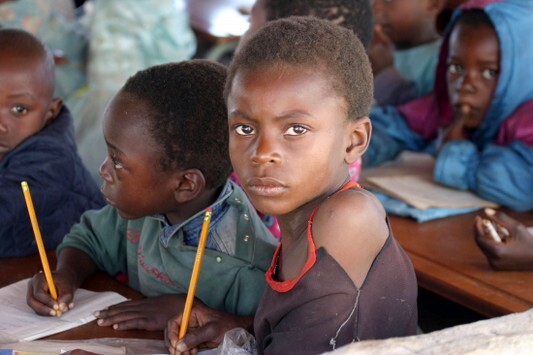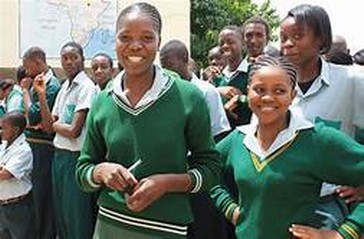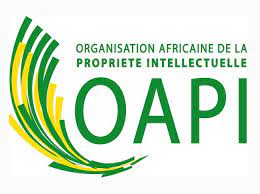Day of the Girl,Child 2020
Press center > Africa Region > Zambia

SUNDAY 11
OCTOBER 2020 INTERNATIONAL DAY OF THE GIRL CHILD
UNICEF
THEME- ‘MY VOICE, OUR EQUAL FUTURE’
Every year
on 11th October the day of
the girl child is commemorated to raise awareness of the basic rights for
girls to access education to the highest level wherever they are in the world.
Here in
Zambia, various factors stand out as obstacles to girls pursuit of higher
education both in urban and rural areas;
Ø Poverty:
Many girls from low income groups face extreme poverty and their families
believe that once the girl reaches puberty the option to give her away into
marriage can alleviate some of their economic harddhip through the payment of
lobola/bride price and additional financial benefits from the family of the
husband after the marriage. The girl also views marriage as a quick option to
financial independence and is therefore willing to leave school.
Ø Adolescent pregnancy: Due to the stigma attached to being a single parent some girls choose
to discontinue their education due to an unplanned pregnancy in their teen
years. The idea of raising a child as a single mother seems challenging when
combined with scholarly duties and this sometimes results in dropping out of
school to pursue small scale economic ventures.
Ø Lack of parental care due to death of parents: The misfortune of death of parents
often results in children being placed under the care of guardians within the
extended family network who may or might not be in a financial position to
sustain the education of additional children to a higher level. Orphans and in
particular girls finding themselves in this situation are particularly
vulnerable and may be encouraged to marry early and discontinue their
education.
International
evidence indicates that keeping girls in school positively affects their life
and benefits the well-being of future generations. When girls are exposed to
quality education they build numeracy, literacy, cognitive and social skills
leaving them better prepared to participate in the labour market and earn an
income for themselves and their families.

Zambia has
one of the fastest growing populations in Africa with a projected 10 million
adolescents by 2050, therefore educating this growing number of youths requires
well-planned investment in the education sector to reach those who are most
vulnerable to dropping out of school. On a positive note the overall school
enrolment has been rising for both girls and boys in Zambia. Additionally, the
disparities between boys and girls has been reaching parity at Primary level
but widening during the adolescent years due to high numbers of drop-out in the
rural and peri-urban areas. The main reasons for dropping out remain poverty,
economic hardship and early marriage.
The Zambian
government has introduced various measures to mitigate the disturbing trends
which result in girls dropping out from school; this includes allowing pregnant
girls to resume their education after the birth of the child, the government
has also embarked on creating awareness about the dangers of teenage pregnancy
to the life of a young girl and has discouraged the traditional practice of
allowing girls to marry after completing the initiation ceremony at puberty. And
following the restrictions of movement caused by the COVID 19 pandemic the
Ministry of Education has provided for secondary school syllabus online to
facilitate home learning in the new normal.
Despite
these positive measures, girls are still socialised to consider themselves as
brides first and business women later, as brides first and scientists later,
brides first and farm or mine owners later.

On behalf
of the INTERNATIONAL HUMAN RIGHTS COMMISSION, I would like to appeal to every
parent of young girls in Zambia to change this negative perception. Let us put
a STOP to this trend and begin a new trend of allowing the girl child to
achieve her dreams through education. Education is the passport to a better
future. Education is a basic human right must be enjoyed by both girls and boys
to alleviate poverty, improve the standards of living of families and
communities and ultimately the entire nation.
On this
INTERNATIONAL DAY OF THE GIRL CHILD, join me and the Zambian girls in saying,
‘MY VOICE, OUR EQUAL FUTURE’ through education!
Michelle
Manda
IHRC-
Zambia Representative


